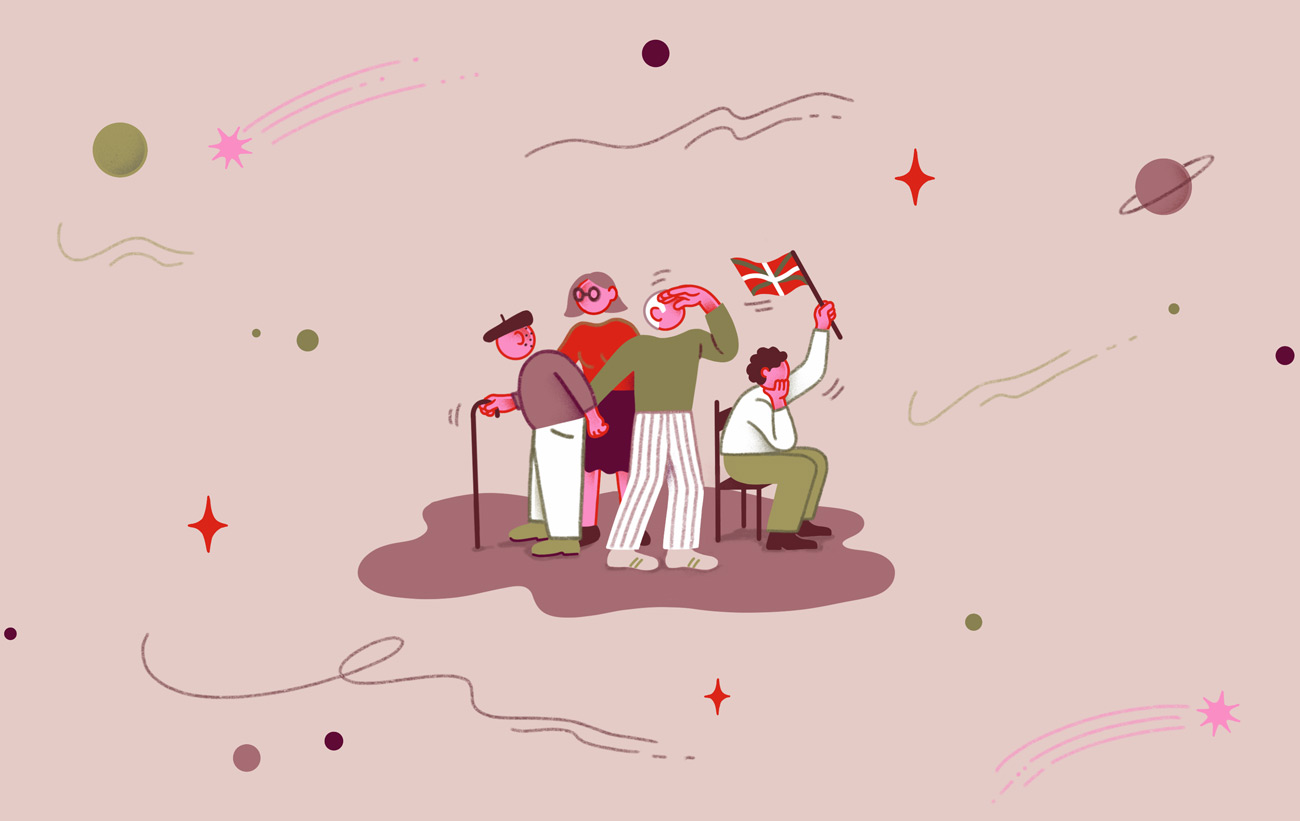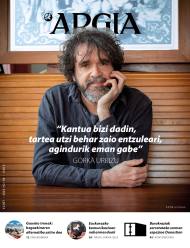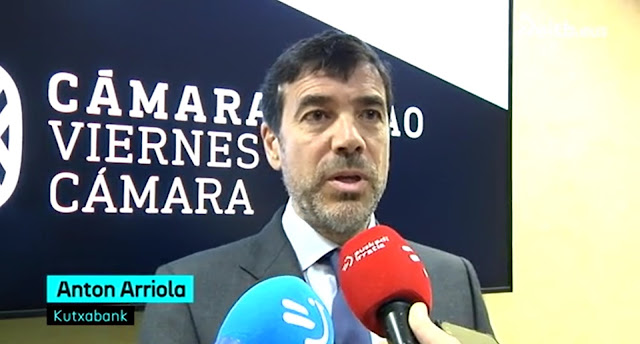Fleeing or not

In the spring, the Iparralde Public Language Policy will be renewed, from which decisions will be taken on the guidelines, intentions and budgetary resources available for the coming years, in which the county, the department, the state and the Basque Urban College will have to adopt a clear position. Euskalgintza is waiting for these deliberations, firmly, since in Iparralde they have been concerned about the situation of the Basque country, shouting for a more appropriate and more determined public policy.
The Basque Public Institution is twenty years old. The Public Language Policy is, of course, older, as it has known a history prior to the creation of the PSE. It can be summarised, however, that general policy, in an organised manner, has begun towards 2004 with the impetus of Basque cultural activity and through the institutions. As a result of this institution and the subsequent creation of the College, there have been a number of changes in terms of resources and lines of work: the Basque cultural activity has been professionalized, the issue has been institutionalized, and the task is not later and therefore merely militant.
In Bizkitarte, the latest socio-linguistic survey prolongs few optimistic reading lines. These are small and localized advances, especially in young generations, with a low incidence in the number of adult specimens and limited development in the areas of use. The decreasing trend in quantitative terms of Euskera is confirmed, decreasing the proportion of Euskaldunes, being bilingual 20%. However, half of that figure says that in Basque it feels as comfortable as in French, so the actual number of Euskaldunes whole and active will not be 10%. In addition, qualitative data are missing: What skills do we have to live in Basque? Where and what quality? It is the part not studied and perhaps studied.
Which Basque community will develop in the territory if only 10% is able to keep the newspaper in Basque?
On this road, it is approaching, sooner than expected, the forecast of the Basque Confederation a few years ago, which said that in 2035 the proportion of bilingual people was 15%. In view of this, there is something to start. Because, what Basque community is going to develop in the territory if only 10% is capable of carrying the everyday in Basque? How can we do this, when most speakers are 60-99 years old, to postpone and develop the language? How can these rude and isolated speakers be adapted to live in Euskera if it is not miserable between them? Here the situation is clearly serious, it is not a situation of simple division, but of early substitution, proportional to the disappearance, which will need (burn) means more than the temperate steps so far.
In recent months, the Basque industry has turned on alarms: it can no more. Residences are unsafe, few teachers and Basque staff are chronic, structural resources are excessively fragile. I mean, everyone is serious. In the years 2000, 25 years ago, in these same pillars of ARGIA, Basque cultural activity spoke of the same problems and numbers.
The structuring of public policy and the twenty years of progress, and the disastrous involvement of the militants, have not clearly influenced the recovery and normalization of Euskera. Politicians, in many cases Castilan-speaking and Castilan-speaking, have in their hands the future of the language and have the time to make a wink. Let us hope that the elected officials and positions will emerge from the misrepresentation and tibidity, and enable actions of the same nature and courage as the partisan speeches that spread to the left and right. Otherwise, comrade, coming ugly.
Bidali zure iritzi artikuluak iritzia@argia.eus helbide elektronikora
ARGIAk ez du zertan bat etorri artikuluen edukiarekin. Idatzien gehienezko luzera 4.500 karakterekoa da (espazioak barne). Idazkera aldetik gutxieneko zuzentasun bat beharrezkoa da: batetik, ARGIAk ezin du hartu zuzenketa sakona egiteko lanik; bestetik, egitekotan edukia nahi gabe aldatzeko arriskua dago. ARGIAk azaleko zuzenketak edo moldaketak egingo dizkie artikuluei, behar izanez gero.
The lights of the theater are on. Discreetly, I’m walking on the steps: the school performance is about to begin. The young men run to their seats, full of life and joy. The retreat has the taste of liberation, but this feeling of freedom speaks Spanish or French. This... [+]
Wikipedian bilatu dut hitza, eta honela ulertu dut irakurritakoa: errealitatea arrazionalizatzeko metodologia da burokrazia, errealitatea ulergarriago egingo duten kontzeptuetara murrizteko bidean. Errealitatea bera ulertzeko eta kontrolatzeko helburua du, beraz.
Munduko... [+]
Egypt ' s urban planning plan for the Gaza Strip has recently been expanded. A drawing shows the streets, buildings and imagery of the future on a reality that still smells of shrapnel and explosives. The urban planning proposal, used as another bomb shot. Individual house... [+]
Bizitza erdigunean jartzeko abagunea ikusi genuen feministok zein ekologistok Covid-19 pandemia garaian. Ez ginen inozoak, bagenekien boteretsuak eta herritar asko gustura itzuliko zirela betiko normaltasunera. Bereziki, konfinamendu samurra pasa zutenak haien txaletetan edo... [+]
Segurtasun falta dagoen irudipena handitu dela azaldu du Eustaten azken txostenak. Gurean, Trapagaranen, Segurtasuna orain, delinkuenteen aurka manifestaziora deitu dute herritar batzuek.
Bi izan dira sentsazio hori zabaltzeko arrazoiak. Batetik, udalak Udaltzaingoaren... [+]
There are those who subscribe to portals to sell their homes because they would like to buy a house. From time to time they even make appointments to see the houses, and I am sure that the seller knows that these people will not buy the house, not because they find it in the... [+]
Haurtzaroaren amaiera eleberri distopikoa idatzi zuen Arthur Clarkek, 1953. urtean: jolasteari utzi dion gizarte baten deskribapena. Eta ez al da bereziki haurtzaroa jolasteko garaia? Jolasteko, harritzeko, ikusmiratzeko eta galdera biziak egiteko unea. Ulertzeko tartea zabalik... [+]
The writer Juan Bautista Bilbao Batxi worked in a boat and sent the chronicles of his travels to the newspaper Euzkadi. Thanks to this, we have interesting chronicles in Basque from around the world from the beginning of the 20th century. In June 1915, he made his stop in... [+]
From linguistics or glotophobia and, of course, hatred against Basque, we have often seen our Basque become the dandruff of all sticks. Last of all, the president of Kutxabank, Anton Arriola, has been shaking our language and giving us galantas.The President of Kutxabank,
... [+]
Do not look for this connection from Ezkio or Altsasu, let alone crossing the Ebro River through Castejón. The connection, or rather the connections, between the Basque Y and the AVE of Navarre is already a reality. It is these links in the plural that should concern us and... [+]
Don't make a fuss, don't confront, don't victimize... and obey. As oppressed subjects, in this case as Basques, we talk, how many times have we had to listen to them? Ironically, two years ago, at the Euskalale Independentiston Meeting, Esne Arzallus said: "We have arrived here,... [+]
Aurten "Israel Premier Tech" txirrindularitza talde israeldarra ez da Lizarraldeko Miguel Indurain Sari Nagusia lasterketara etorriko. Berri ona da hori Palestinaren askapenaren alde gaudenontzat eta munstro sionistarekin harreman oro etetea nahi dugunontzat, izan... [+]
Intsumituek denbora luzez egindako borroka gogorra eta mingarria izan zen, baina irabazi zuten, eta garaipen hura behin betikoa izango zela uste genuen, atzera bueltarik gabea. Baina badirudi, politikari batzuen ahotik aterata, eskalada militaristari gorazarre egin eta berriz... [+]
Zenbait estatistikak berretsi dute begiak hondar urteotan ikusten ari zirena: gimnasioak (eta estetika-zentroak eta nolako-edo-halako-terapia eskaintzen duten negozioak) nabarmen ugaldu dira gurean. EITBk plazaratutako datu bat emateko: EAEn 2010-2019 urteen bitartean, zazpi... [+]





















